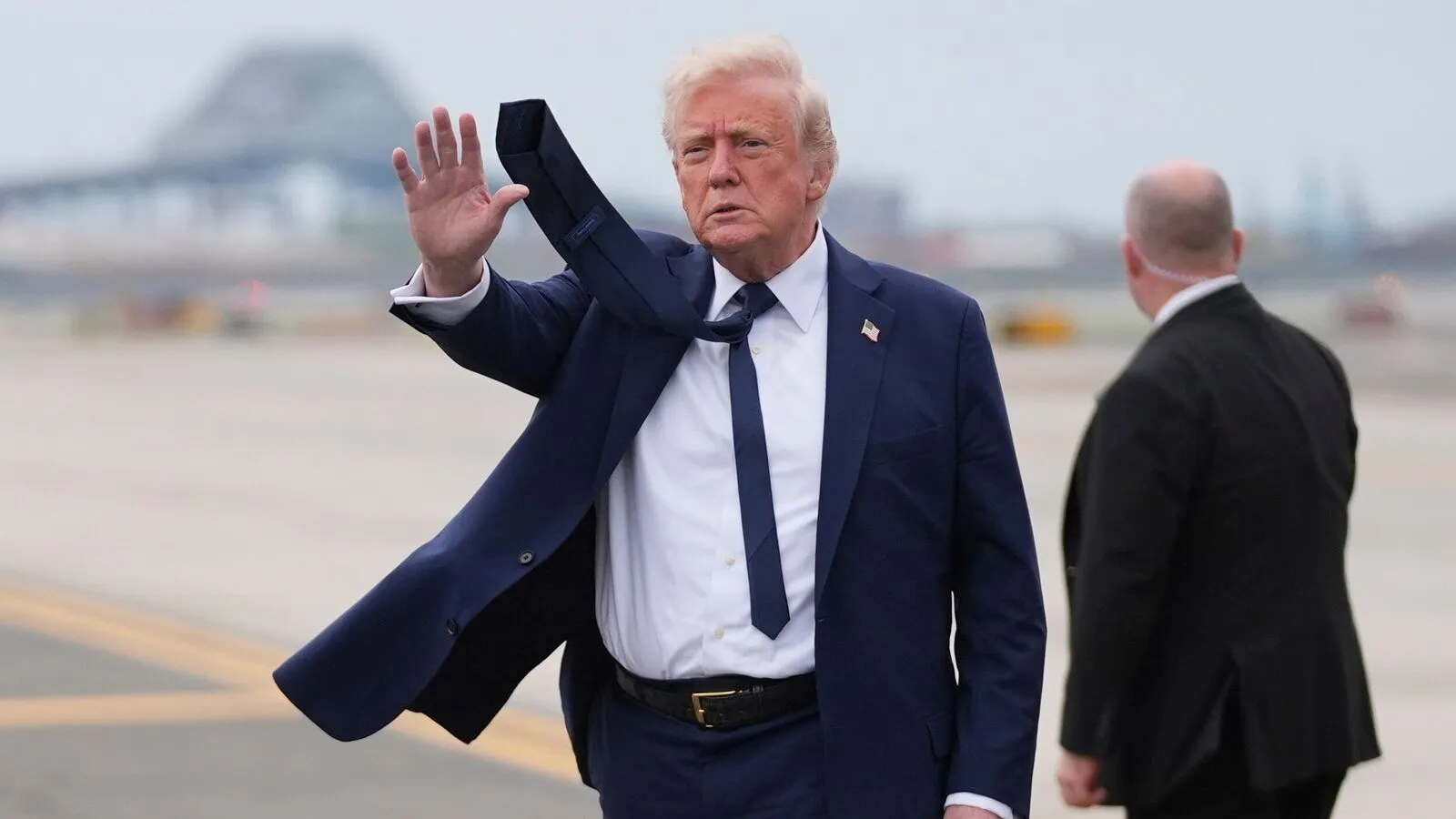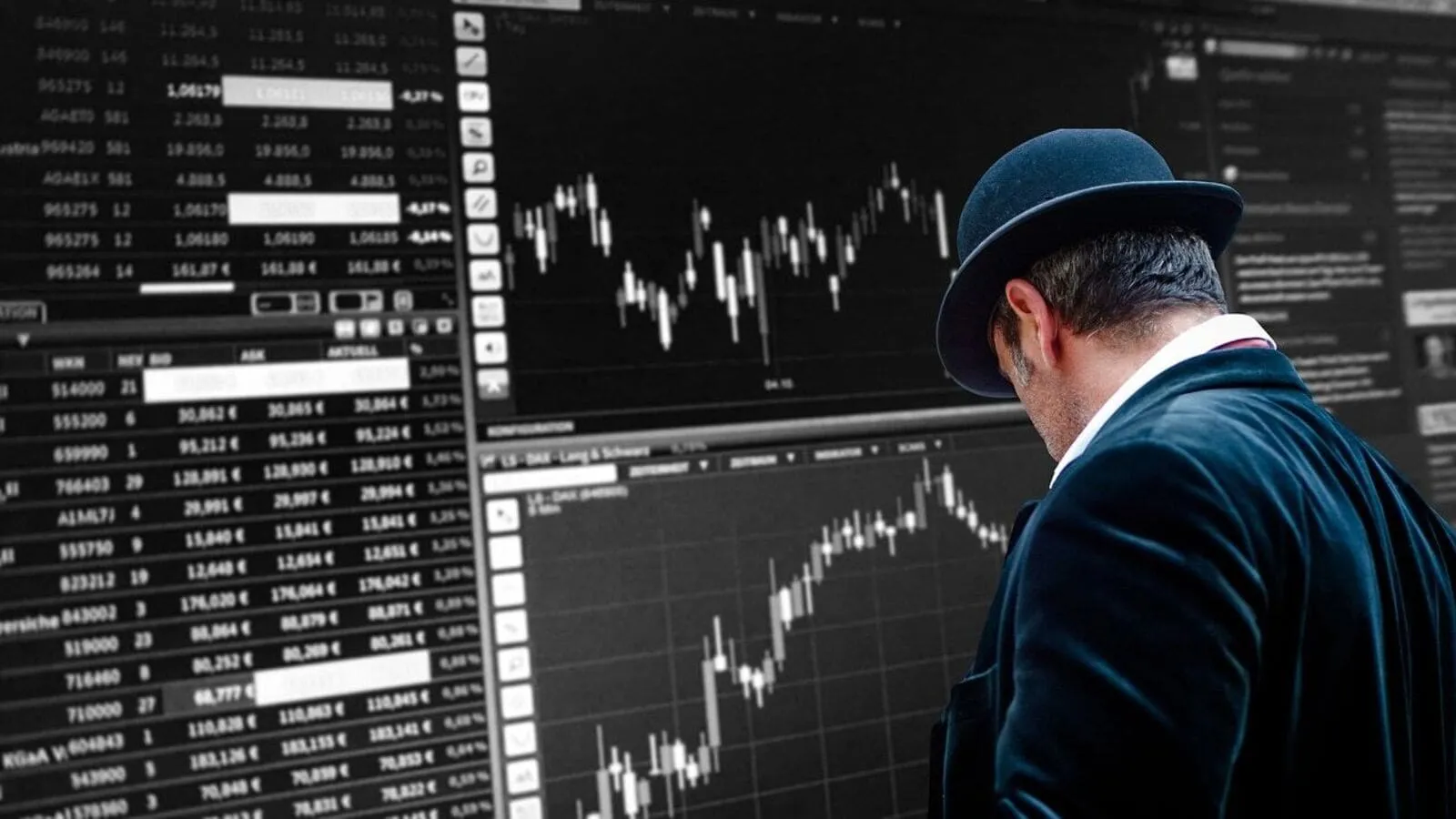Trump’s agenda faces a reality check. The volatility isn’t over.

It may not last.
Trump took steps to calm markets last week by easing his criticisms of Federal Reserve Chair Jerome Powell and suggesting the administration may soon lower its staggeringly high China tariffs. But negotiations are dragging out as the economic hit nears. And there is little reason to believe that the voices of policy reason, such as that of Treasury Secretary Scott Bessent, will remain dominant in the president’s ear.
In other words, the volatility that has clobbered so many stock investors lately is likely to persist, while the selloff by bond investors and dollar-holders could intensify.
To be sure, the stock market has managed to win back some of its losses since the president’s April 2 tariff frenzy. Warnings that the stock market was headed for its worst April since the Great Depression haven’t come to pass. That wasn’t lost on Bessent.
“The Nasdaq is now up in the month of April. And I haven’t seen a story that says, oh, the stock market has the biggest bounceback ever,” Bessent told ABC News Sunday.
That might be because Bessent’s statement is selective. The Nasdaq rose 0.5% from April 1 through April 25, but that counts up-days on April 1 and 2; Trump’s tariff surprise came after the close on April 2. Since then, the Nasdaq is down 1.2%, and it is off 13.8% from its record in December.
Still, Bessent is right that tariffs haven’t produced the worst-case scenarios for investors. But they are only just now starting to bite—and to bring in revenue. Trump has big plans for the money: “Many people’s Income Taxes will be substantially reduced, maybe even completely eliminated. Focus will be on people making less than $200,000 a year,” Trump posted on social media Sunday.
That, too, is a stretch. For scale, income taxes are expected to bring in about $2.6 trillion for the 2025 fiscal year ending in September, according to the nonpartisan Congressional Budget Office. Meanwhile, the revenue haul from tariffs this month so far has been about $16 billion, economist Steve Blitz of TS Lombard calculates from Treasury data. That is 131% over April 2024—and the numbers will surely rise. But it is nowhere near enough to cut anyone’s income taxes.
With DOGE’s cuts also coming short, the federal government is set to keep deficit spending for the foreseeable future, even as long-term Treasuries remain under pressure from investors who are suddenly questioning whether U.S. assets are worth holding at recent prices.
The sell-America trade has brought down the value of the dollar by 7% since early January. “Investors dumped the [dollar] even though it became more attractive amid rising yields,” writes Ludovic Subran, chief economist of asset manager Allianz, in a note to clients. “This indicates that investors are selling U.S. bonds and equities and swapping the proceeds to other currencies, in particular the euro.”
Investors have plenty of other mayhem to look forward to in May.
One crucial test will come on May 7, when Powell will update the public on the Fed’s latest thinking about interest rates. He is expected to keep interest rates steady, while Trump wants them down. Trump said a week ago he wasn’t planning to fire Powell, but then spent the rest of the week complaining about the Fed chair. Each press conference will now come with a heightened risk that the impatient president finally eats the marshmallow and takes action against Powell.
Powell and Trump will also need to adjust to whatever news comes along with the declining shipments of cargo from China. As Lombard’s Blitz points out, empty shelves may not be the biggest market worry. Small U.S. firms may find themselves unable to pay the bills amid sharply rising prices.
“Drying up credit extensions is what kicks the economy into recession, even when the downturn in demand begins in real activity as opposed to a financial accident,” Blitz writes.
Markets welcomed the prospect of a tariff climb-down last week after Bessent said an embargo wasn’t sustainable. But now the crucial week of the IMF spring meetings has passed without any meaningful progress on tariffs. And if Trump is orchestrating a grand plan, he hasn’t told his Treasury secretary.
“I don’t know if President Trump has spoken with President Xi,” Bessent told ABC on Sunday.
It is hard to be the adult in the room if you aren’t in the room.
Still, a recession remains avoidable, while the not-so-bad performance of stocks lately shows that investors are still willing to keep buying at the right prices. Treasury yields remain below their recent peaks, despite the fast rise of longer maturities. A weaker dollar could help, for instance, boost the sales of the farmers who have been on the receiving end of retaliatory tariffs.
Trump has played many of his initial cards, only to find his agenda largely unpopular and weighing on the economy. He could pivot, or he could double down with the pharmaceutical, semiconductor, and other sectoral tariffs he has been threatening. Where the markets will be in another hundred days is anyone’s guess.
Write to Matt Peterson at matt.peterson@dowjones.com









